Jamming with Archive: Re-coding
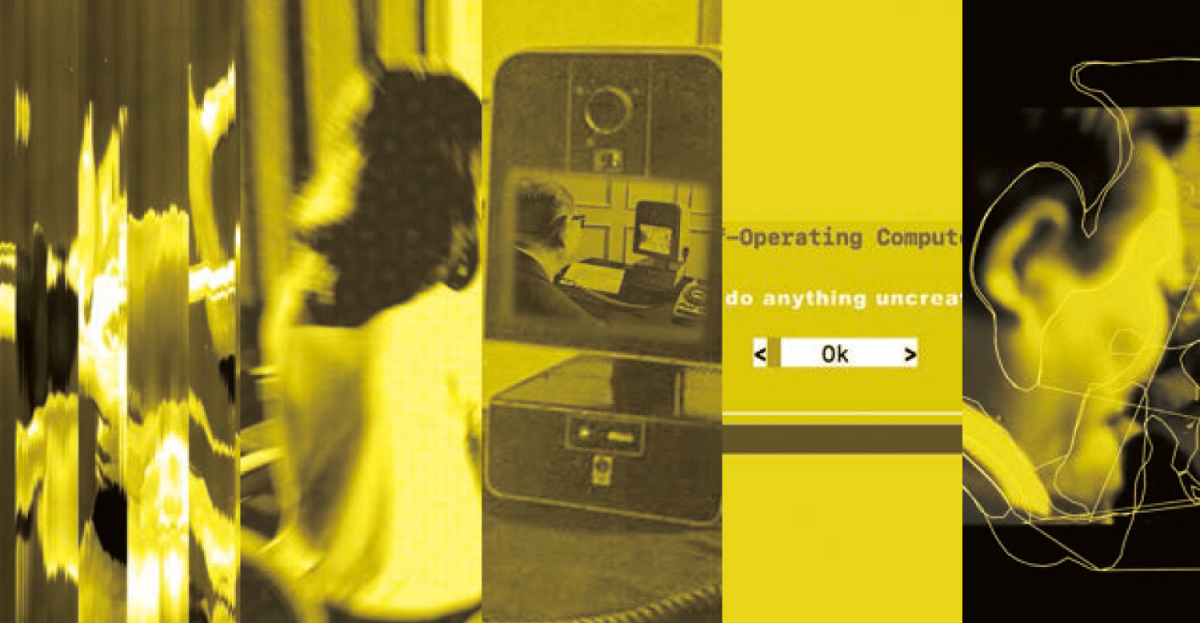
This project is based on thousands of Taiwan Film Culture Company (TFCC) newsreels (1945-1980s) in the collection of the Taiwan Film and Audiovisual Institute (TFAI). These archival footage represent convergences, decompositions, and manifestations of Taiwan’s history, politics, and cultures of the past. Through archiving, the nature of the original materiality was transformed from celluloid film into digital codes and electronic signals between servers, from light and shadow into 0 and 1.
Five groups of artists experiment with and transform diverse media using open-source software or technologies such as real-time computing, on-site sensing, and machine learning. Their remakes with selected archival footage are presented in the form of live audiovisual performances. The audience is invited to unearth the unknown and the known hidden therein, swaying their brain waves in a mind-expanding process.
FREE ENTRY
Time|05.12 SUN 18:00–21:00
Venue|C-LAB Art Space I, 1F
Artists|
DEAN Chi-you
LIN Yude × THRIVE13
LIU Tung-yu × CHUANG Sheng-kai
CHENG Hsien-yu
YouNuts (CHANG Yen-tzu × TSAI Ning)
Drinks Stall| 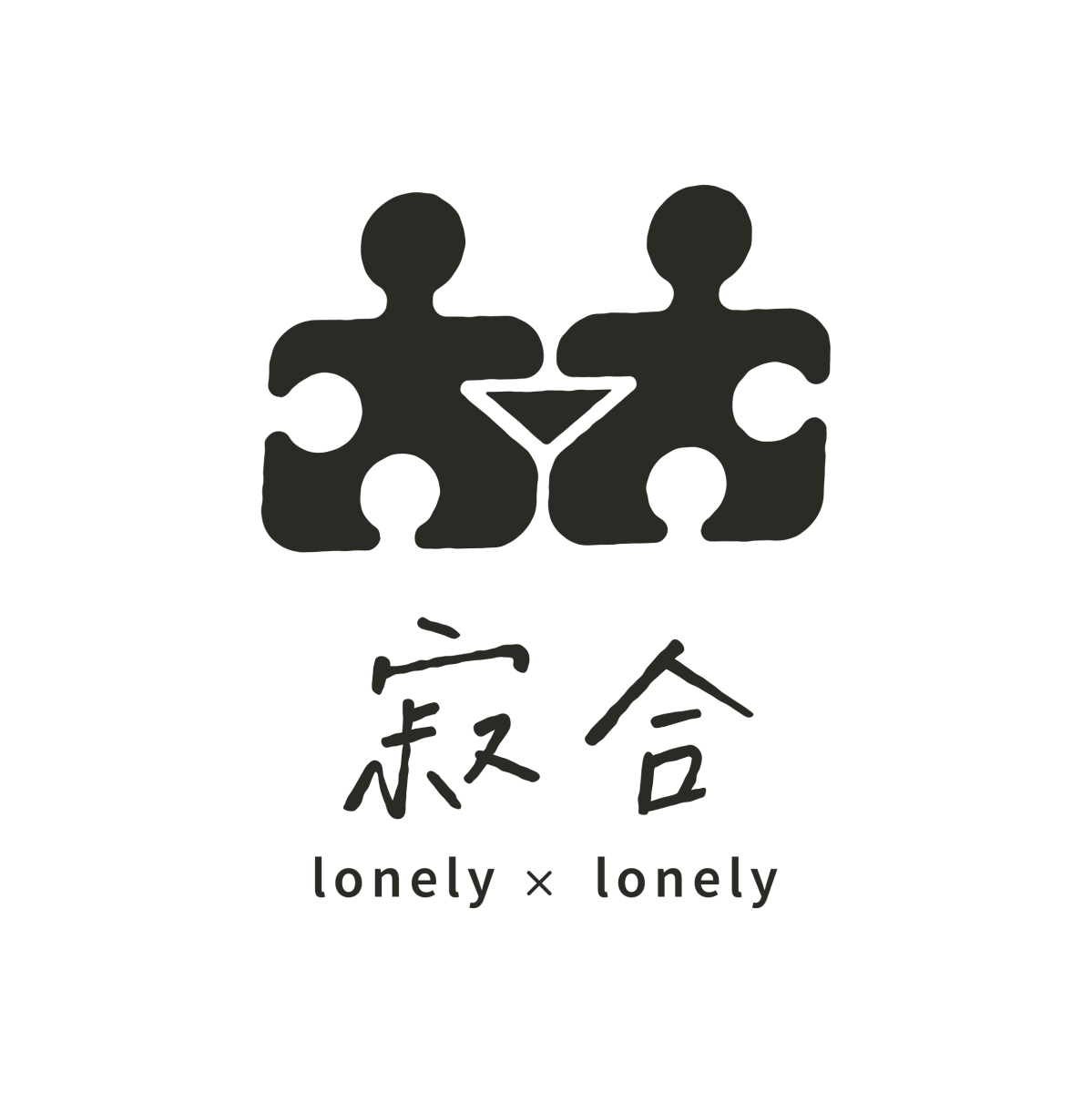
※The audience may enter and leave the venue at any time during the performance.
※The performance may contain strobe and loud sound effects. Audience discretion is advised.
※ Collaboration with ![]()
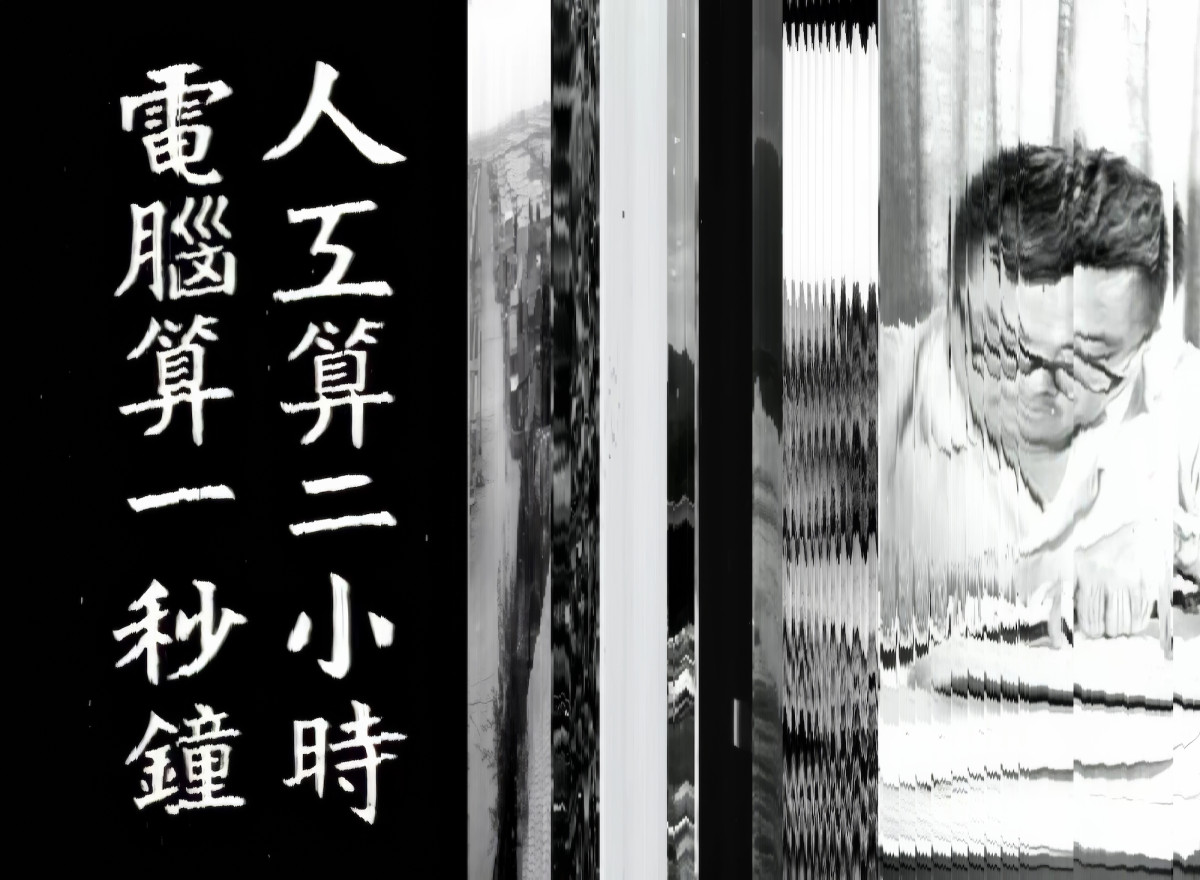
Jogging on the Frame
The TFCC newsreels borrowed from the TFAI film archive contain news about bullfighting, Nurses Day, a fish-eating event, and the king of Saudi Arabia. Although most of the titles and content may seem unsurprising today, comments and feelings involuntarily came to mind due to the historicity and image quality that these footages assume through digitalisation. After a quick browse using a shuttle remote, I perceived some resemblance between scenes in the images and frames of negatives, which all change slowly with time due to natural or artificial reasons. Whether regarding the past or the present, a pause leads toward the next phase.
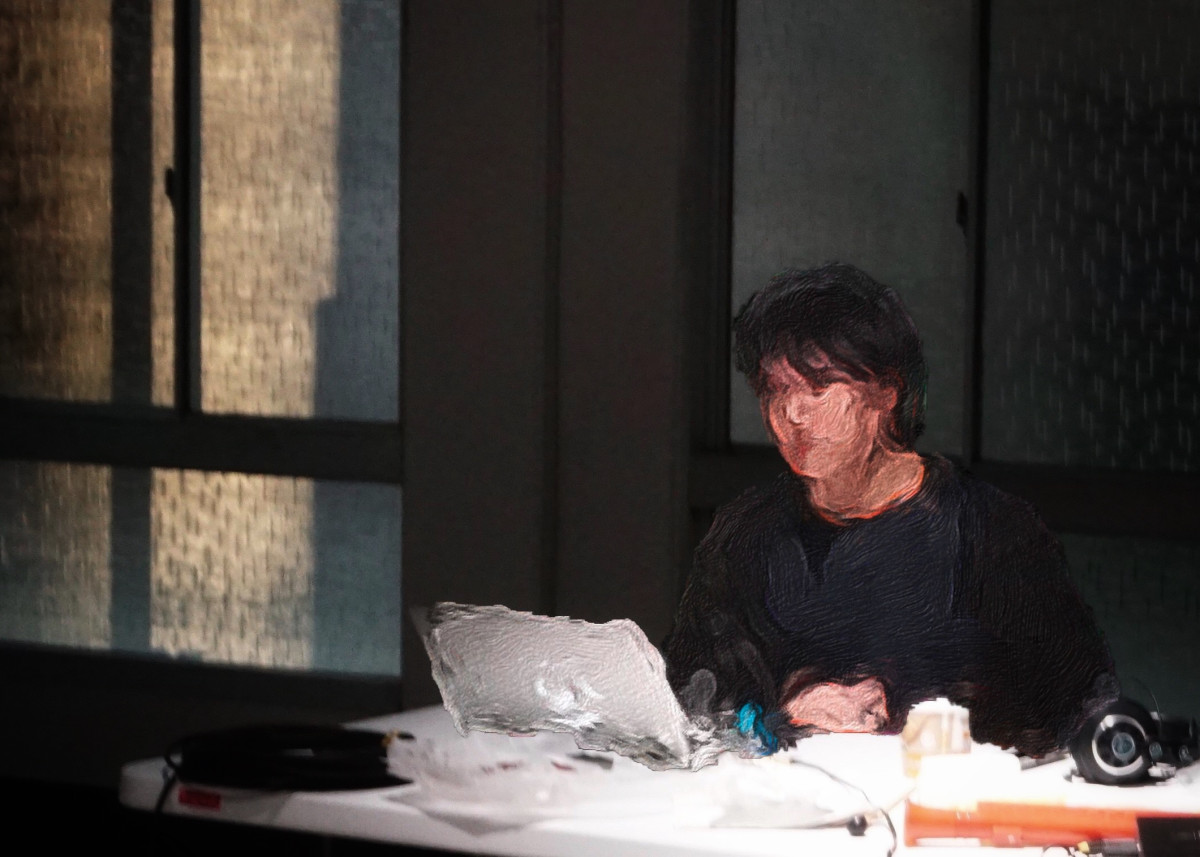
DEAN Chi-you
Dean Chi-you is interested in dance music, computer music, and nature sounds. He attempts to instil notions of repetition, non-linearity, and synthesis in his work, which is mainly oriented around indetermination and not knowing.
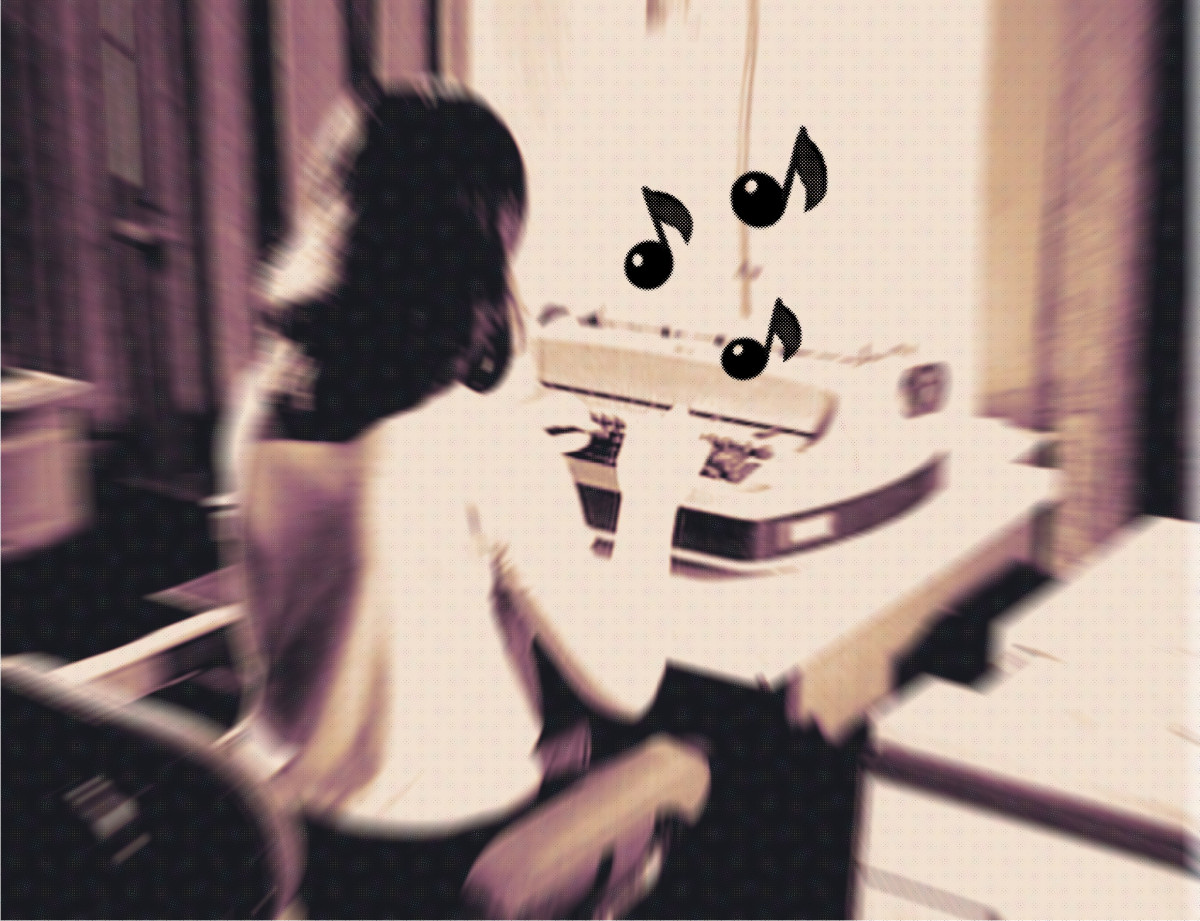
Negative Space of the Announcer
Before getting ready at the broadcasting desk, announcer A takes a nap in a cell next to the broadcasting room. Although recent events in his life are not to the point of provoking weird dreams like a career review, he does feel his days as an announcer seem to last longer than he remembers. In a dream, he hears himself singing, while the colleague on the other side keeps on grasping what he has not uttered yet. Produced using a speech synthesis model, the content of this programme is entirely fictional.
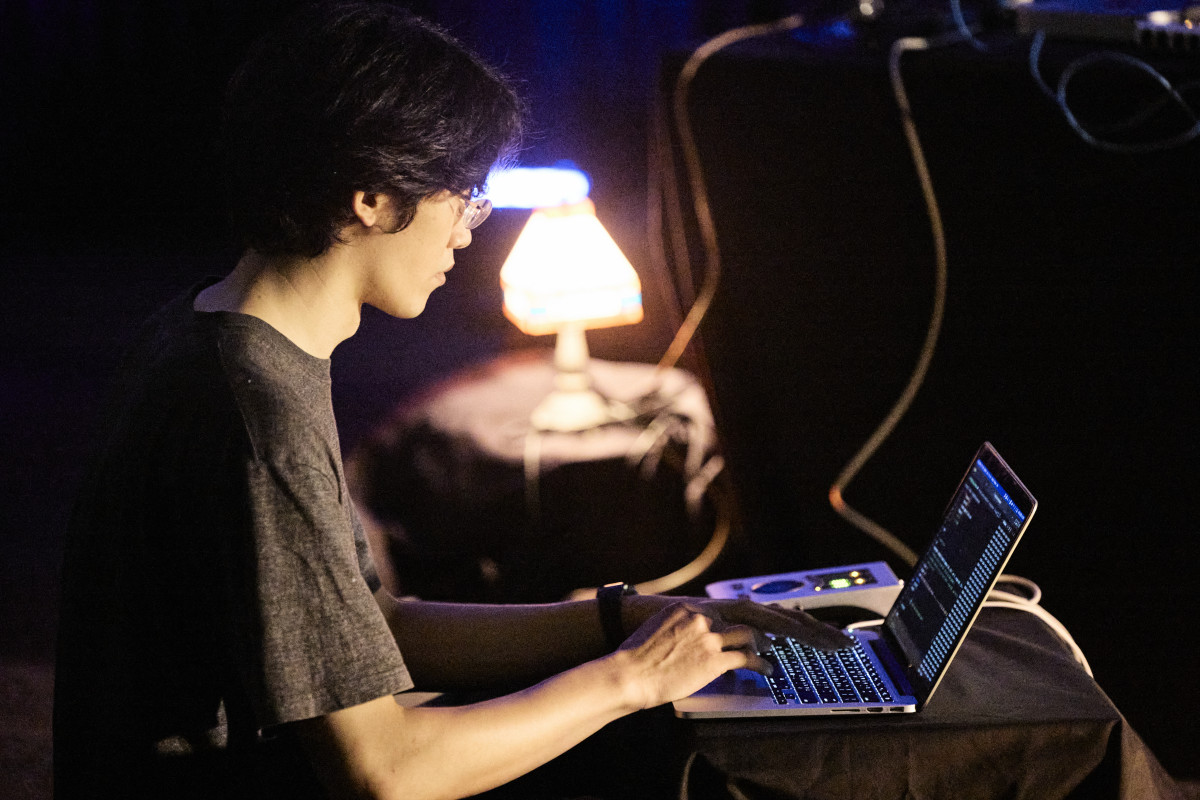
LIN Yude
Theatre sound designer, recently involved in the co-production of Apostating Time by Gang-a Tsui Theater and Approaching Theatre. Also participated in C-LAB’s CREATORS Program ‘Live Coding Research and Promotion Project’ which explores and introduces live coding practice to the public. He also composed music for the film Days Before the Millennium and programmed sound for videos, exhibitions, and installations.
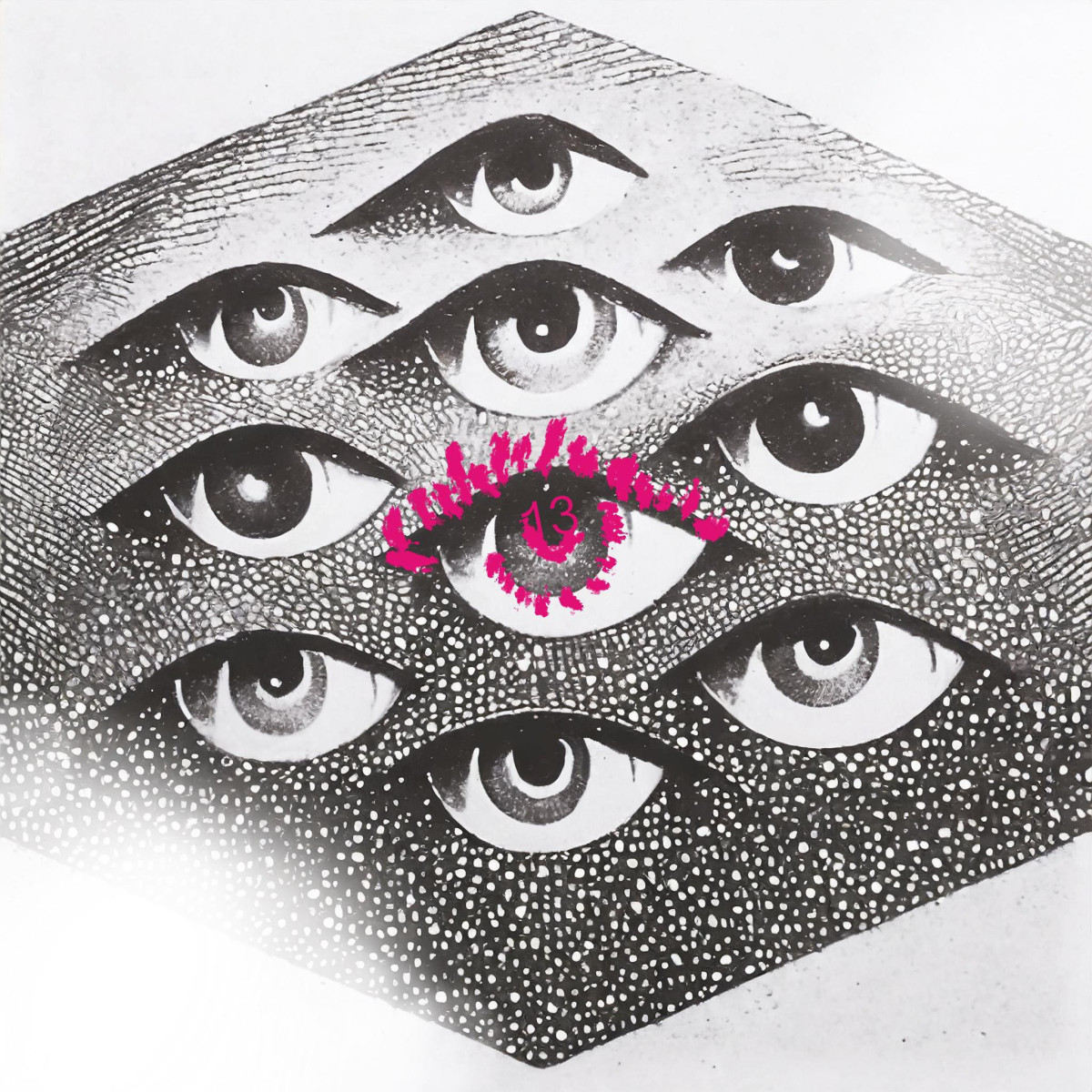
THRIVE13
Visual / image / art, etc. /
attempting to blur the lines between reality and imagination/between figuration and abstraction
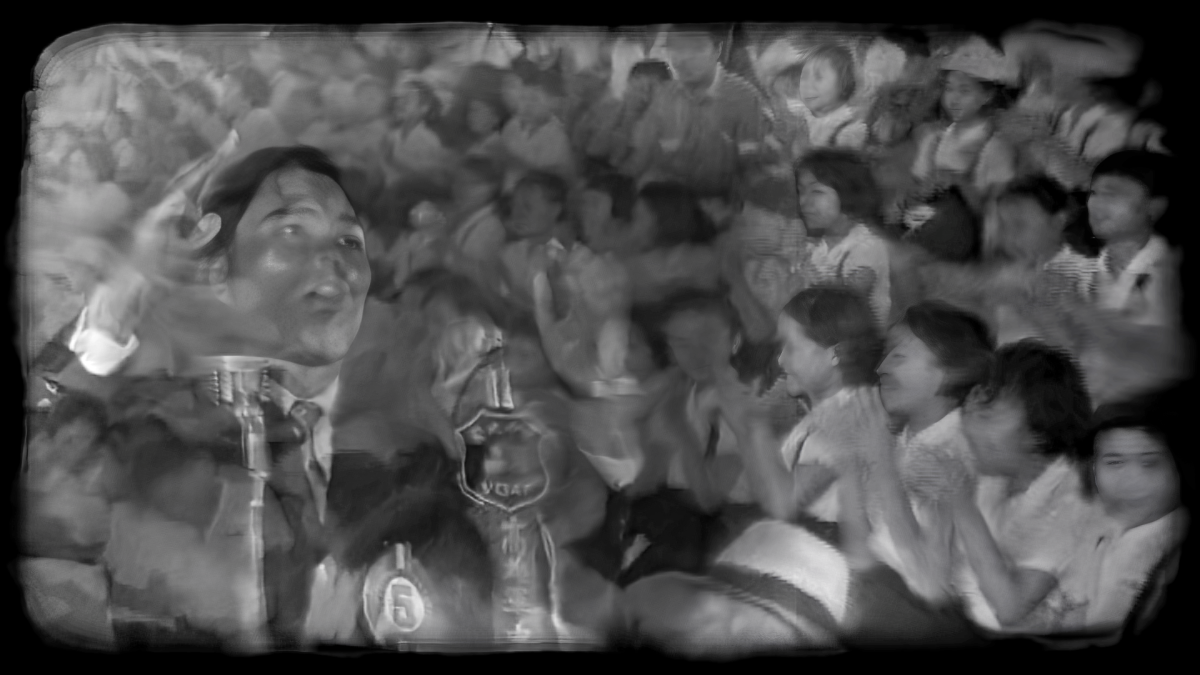
Real Reels
For Real Reels, an approach similar to ‘supercut’ is employed to make real-time audio-visual instruments on the basis of samples taken from recurrent subjects found in TFCC newsreels, including officials’ speeches or listening audiences. The samples are deconstructed and collaged using rules of algorithm design. By altering the number of speakers and power hierarchy, the information flows through the scalar chain or between the majority and the minority, and the relationship between discourse and power is re-interpreted.
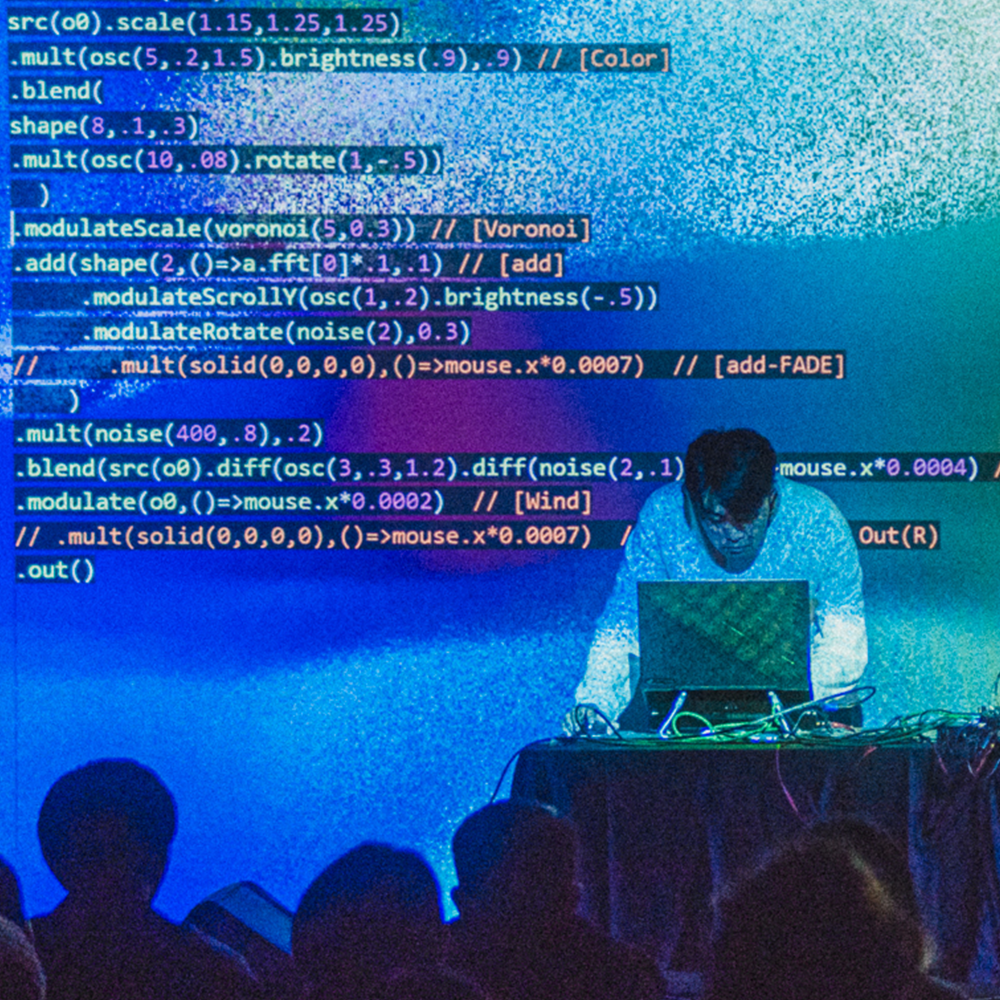
LIU Tung-yu
A project manager and an audio-visual artist, Liu Tung-yu versatilely shifts between the fields of street dance, performing arts, and new media art as a producer, a technician, and an artist. In recent years, he has focused on ‘live coding’ communities and audio-visual performance. In a gentle style, his works often feature a childlike touch.
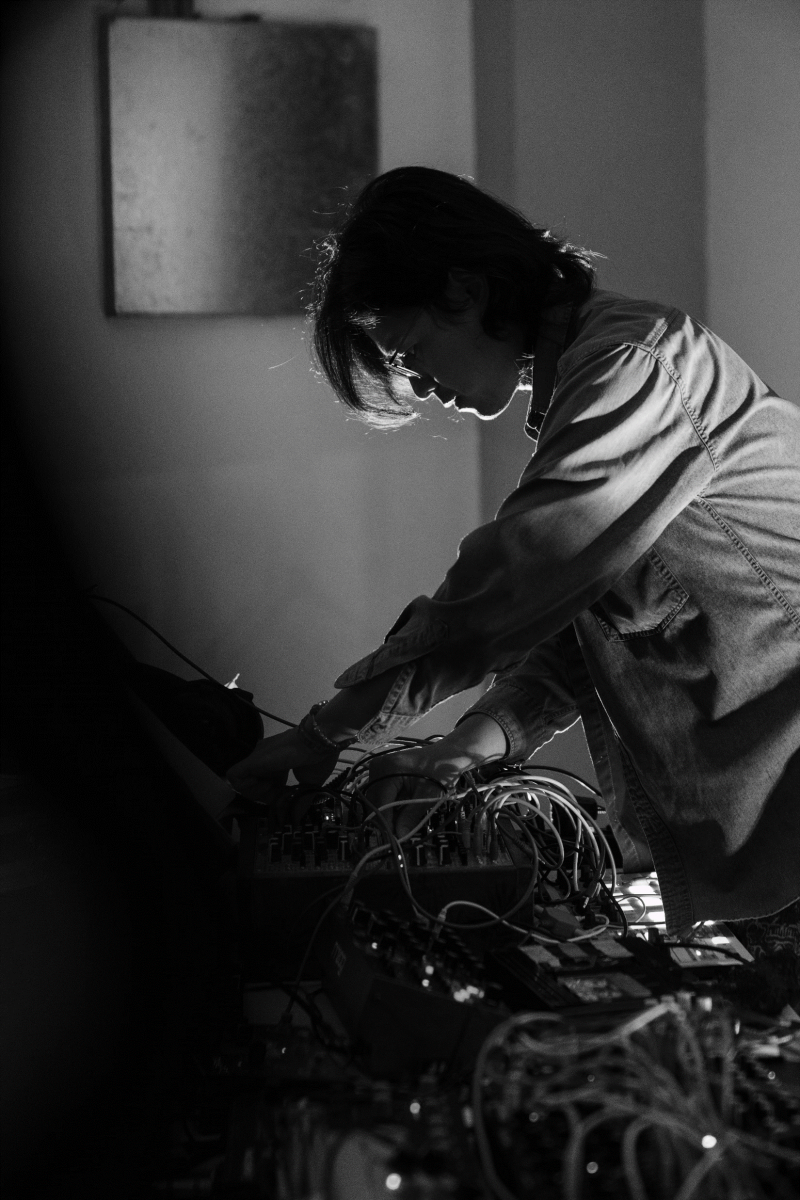
CHUANG Sheng-kai
Chuang Sheng-kai’s work encompasses experimental electronic music, sound design, and scoring. He explores connections between sounds and any media by integrating sounds obtained through self-made recording devices, sound collecting, or sound design. In recent years, he has been using unconventional spatial sounds and Ambisonics technology in his performances. He also performs using a modular synthesiser and in collaboration with artists from various fields.
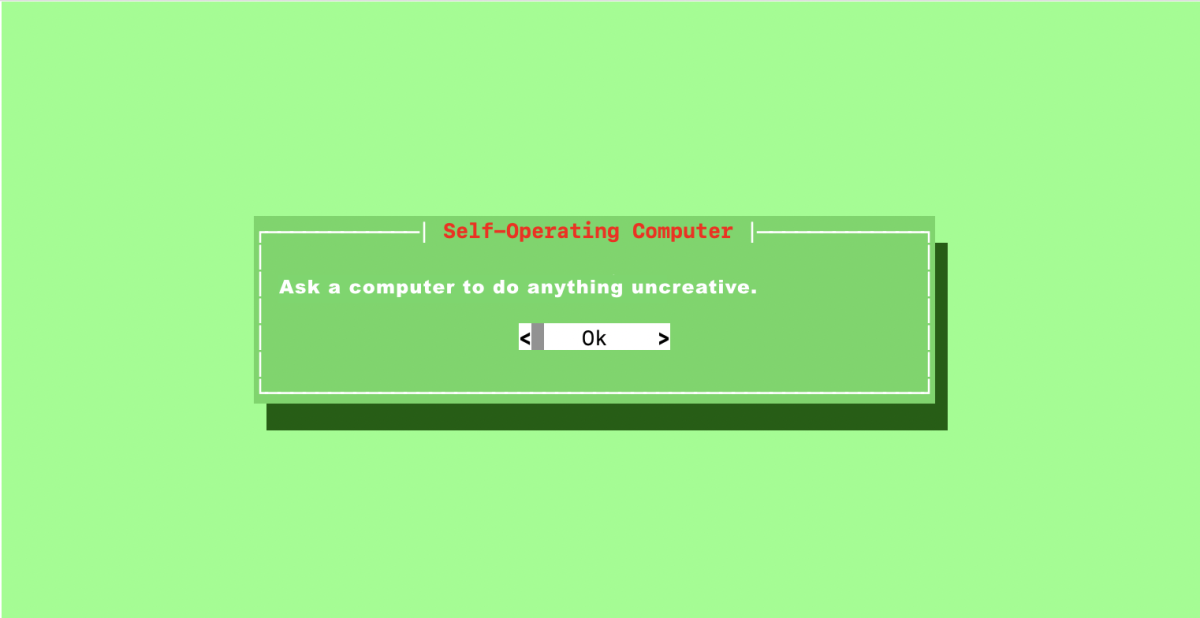
Generations of Resolution
Real-time audio-visual generative performance integrates streamed imagery from TFAI with machine learning models for image-to-image translation and real-time sound generation. During the performance, audio-visual materials are generated in real-time using a self-operating system developed by the artist through modified language models. These materials provide a brief narrative on the development history of resolution through text generation and are incorporated into the performance.
The conceptual basis of the performance is rooted in recent discussions on Artificial General Intelligence (AGI), focusing on four main AGI concepts: Autonomy, Learning, Generalisation, and Creativity. Language models are utilised to perform automated audio-visual presentations by issuing narrative instructions, with the invention and evolution of resolution serving as the narrative direction.
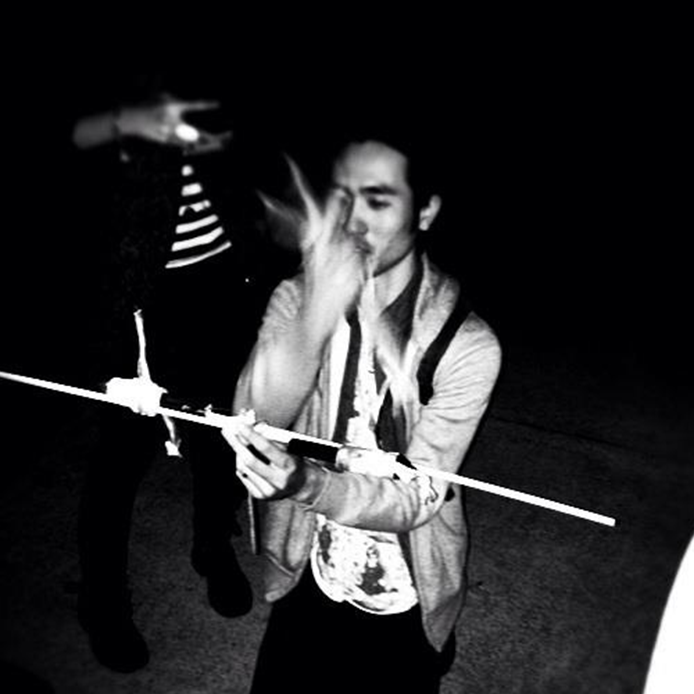
CHENG Hsien-yu
As an artist and a software developer, Cheng Hsien-yu’s working process expands into electronic installations, software, and experimental bio-electronic devices, with an aim to explore the relationships amongst human behaviour, emotion, software, and machinery. In a humorous manner, he attempts to endow his works with vital signs and existential or empirical significance, to metaphorically embody his own experience and observation of the environment. His solo and group exhibitions were mostly exhibited in Taiwan, Asia, and Europe.

(Behind) Bright-Side
News sometimes resembles an apparatus for those in power to promote political achievements and attain social stability as imagined. Today, the utterly positive style and seriousness of reporting in the past make people laugh. As time evolves, juxtaposed with others, absurdity reflects the shadows difficult to discern in the current temporal-spatial context. (Behind) Bright-Side is based on a past initiative of the Government of Taiwan, i.e., sending balloons containing supplies to mainland Chinese as a relief. Related news materials are employed to make audio-visual elements, installations, and sensors for this performance, which depicts the phenomena of spectatorship transformation in terms of thinking.
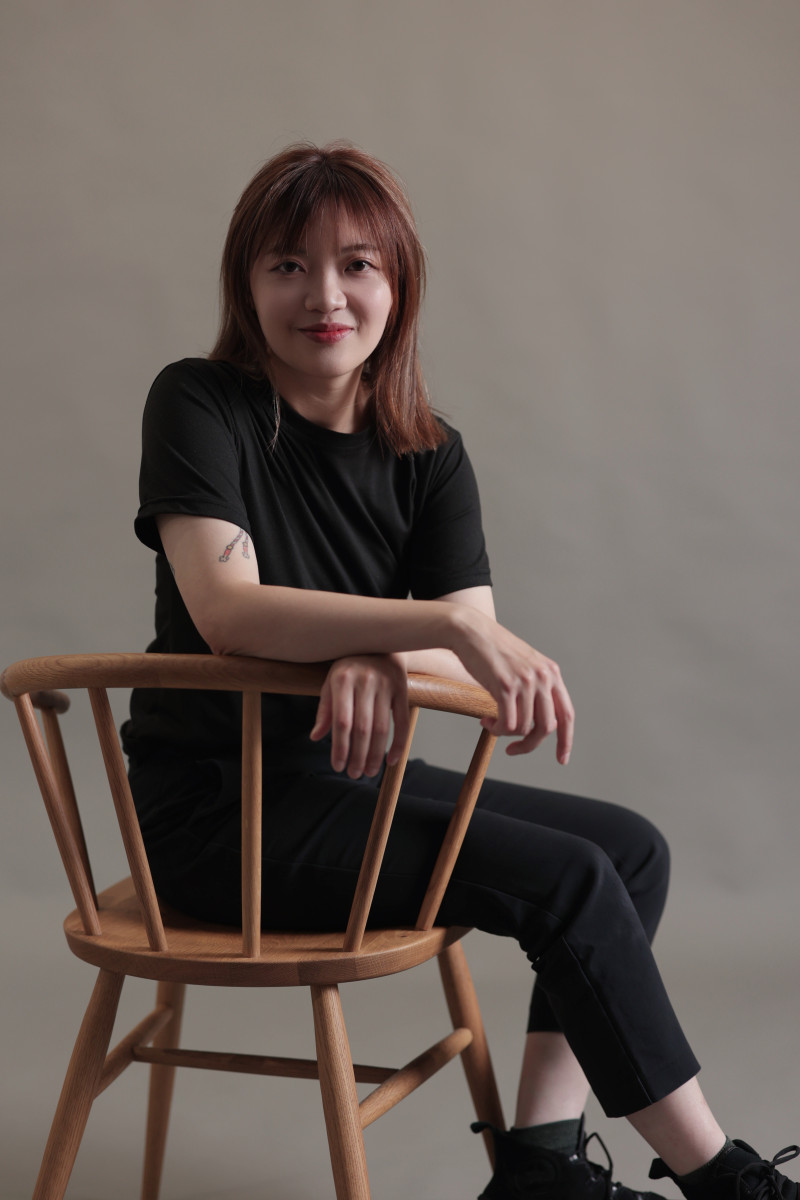
YouNuts
CHANG Yen-tzu
Chang Yen-tzu is a new media artist, director, and sound artist, whose works have been presented at numerous international art/music festivals. The Mirage Replicas 2.0 directed by Yen-tzu, premiered at the opening of the Ars Electronica Festival 2023. In recent years, she has received domestic and international recognition, being selected for art residency at Hangar, PICA, and institutions like ITRI.
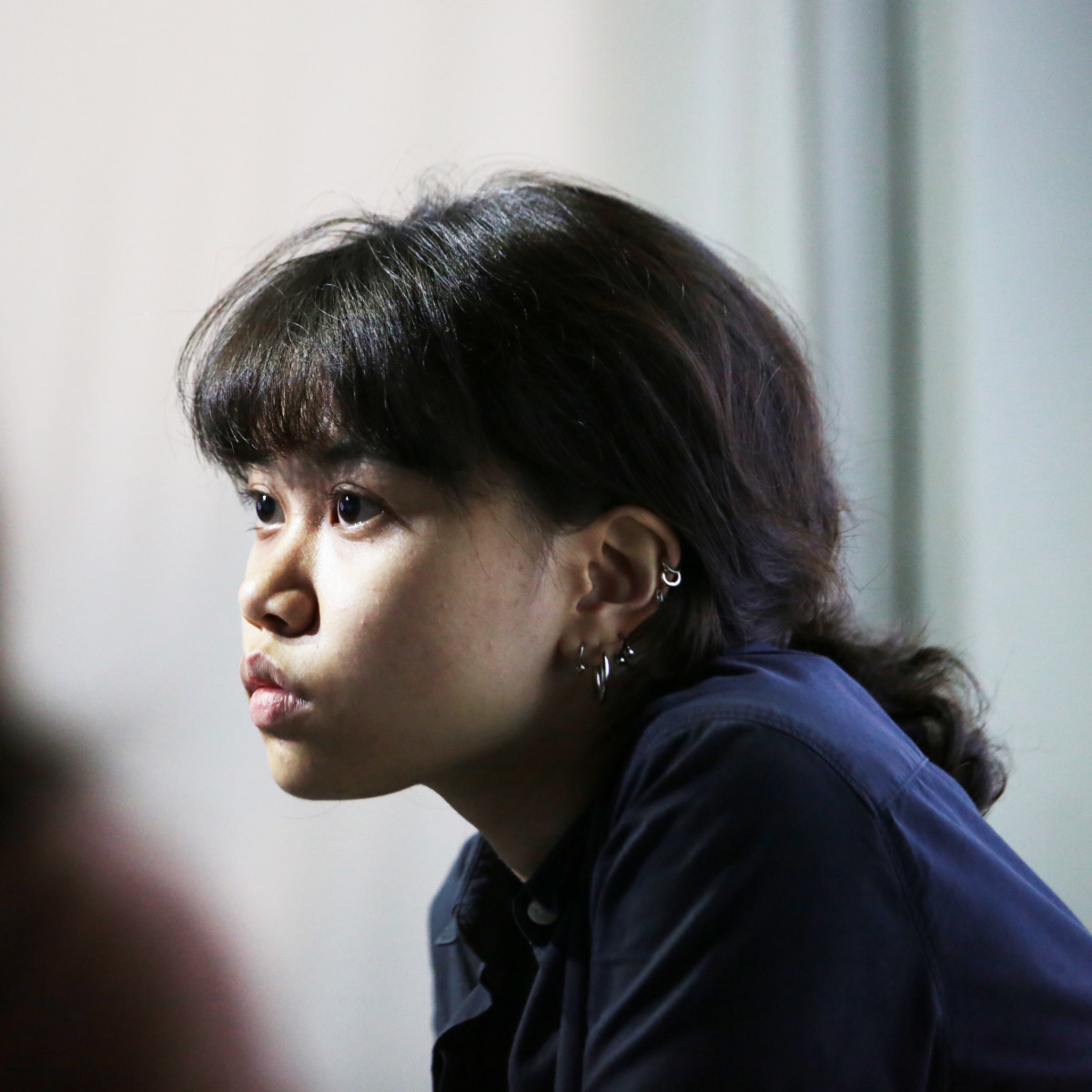
YouNuts
TSAI Ning
Tsai Ning, an artistic practitioner and architectural designer, holds an MS in Architecture and is interested in interdisciplinary exploration. She works across digital fabrication, interactive installation, spatial projection, and experimental sound art, focusing on the research of human action, reconstruction of marginal subjects’ identity, existence, and existential perception.
